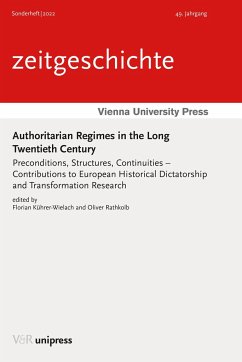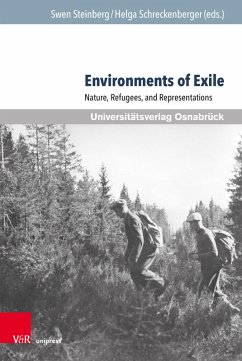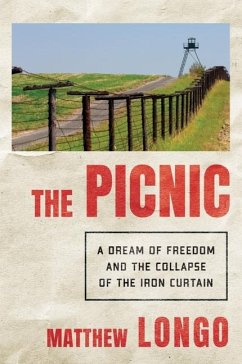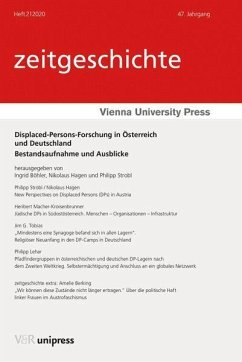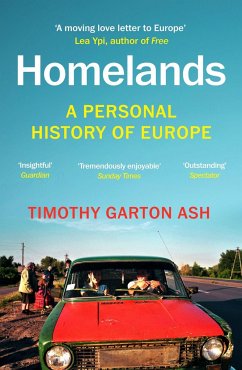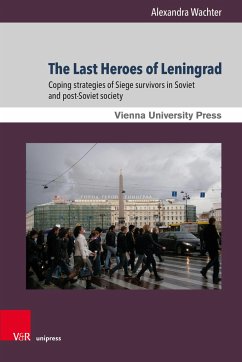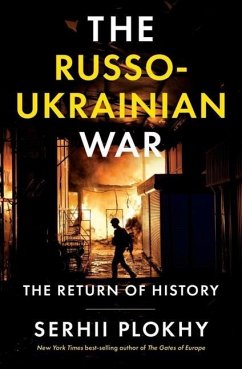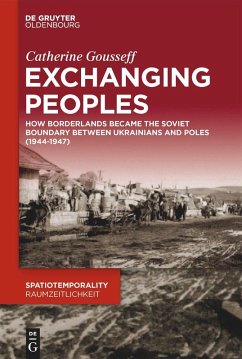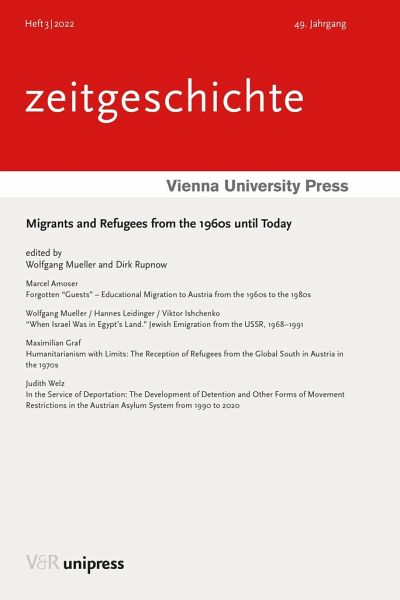
Migrants and Refugees from the 1960s until Today

PAYBACK Punkte
0 °P sammeln!
One of the oldest phenomena in the history of mankind is migration, whether peaceful or violent, voluntary or forced, barely noticeable outfl ow or mass movements. In the 19th century, regional migration to frontier territories, as for example in the Russian Empire or the United States of America, was a natural object of research. In the 1960s there was renewed interest in migration history in Western Europe due to the increase of immigration. With the collapse of the Soviet Union and the so-called Eastern Bloc, the history of borders came again into focus, leading to a new generation in migra...
One of the oldest phenomena in the history of mankind is migration, whether peaceful or violent, voluntary or forced, barely noticeable outfl ow or mass movements. In the 19th century, regional migration to frontier territories, as for example in the Russian Empire or the United States of America, was a natural object of research. In the 1960s there was renewed interest in migration history in Western Europe due to the increase of immigration. With the collapse of the Soviet Union and the so-called Eastern Bloc, the history of borders came again into focus, leading to a new generation in migration history. This development was reinforced by the "summer of migration" of 2015. The history of migration to Austria, especially during the Second Republic, has long been a topic overlooked by historians, but received increased attention since the 1980s. The present volume presents research currently being done on the history of migration to or through Austria.
Dieser Artikel kann nur an eine deutsche Lieferadresse ausgeliefert werden.




